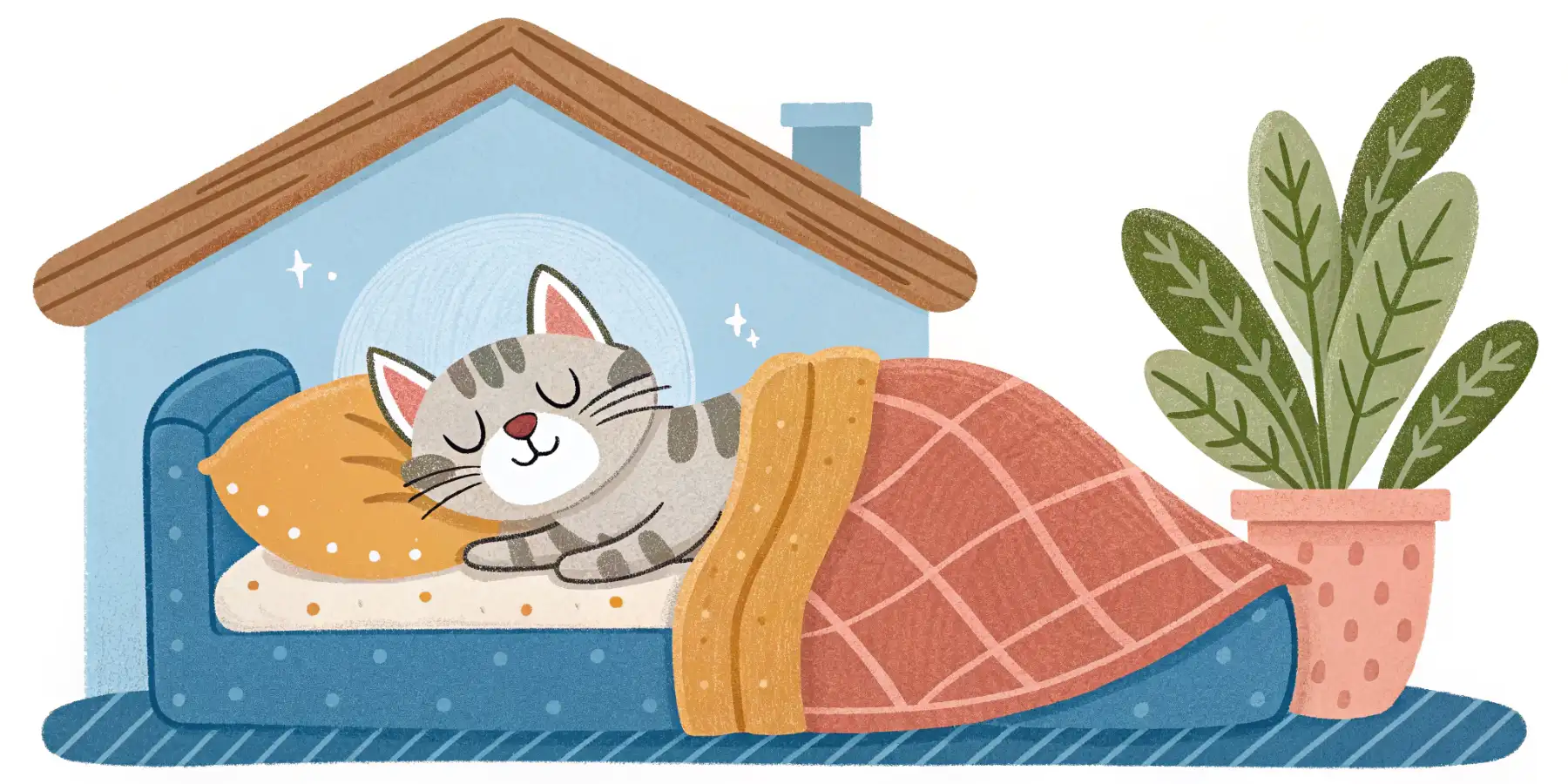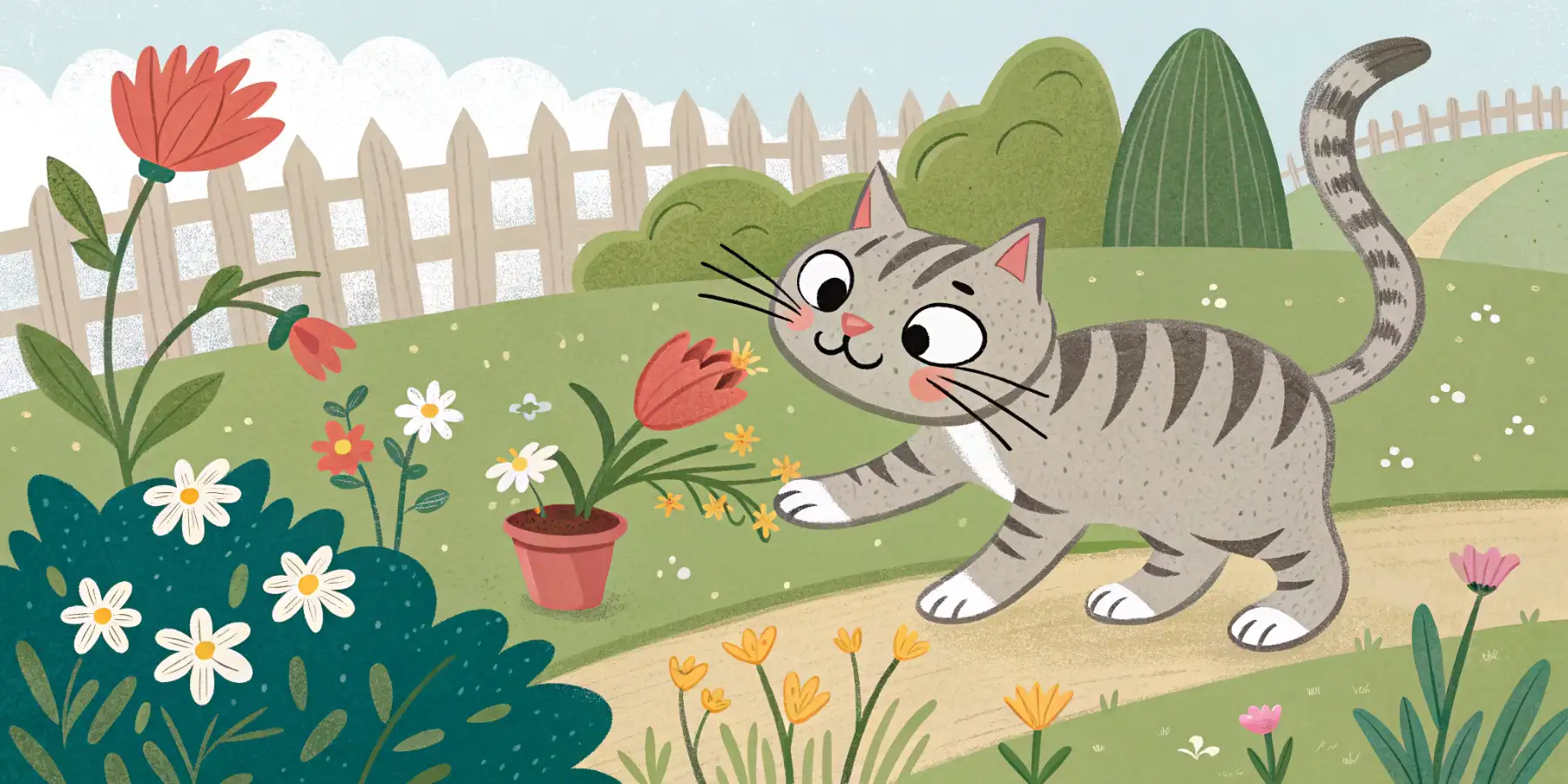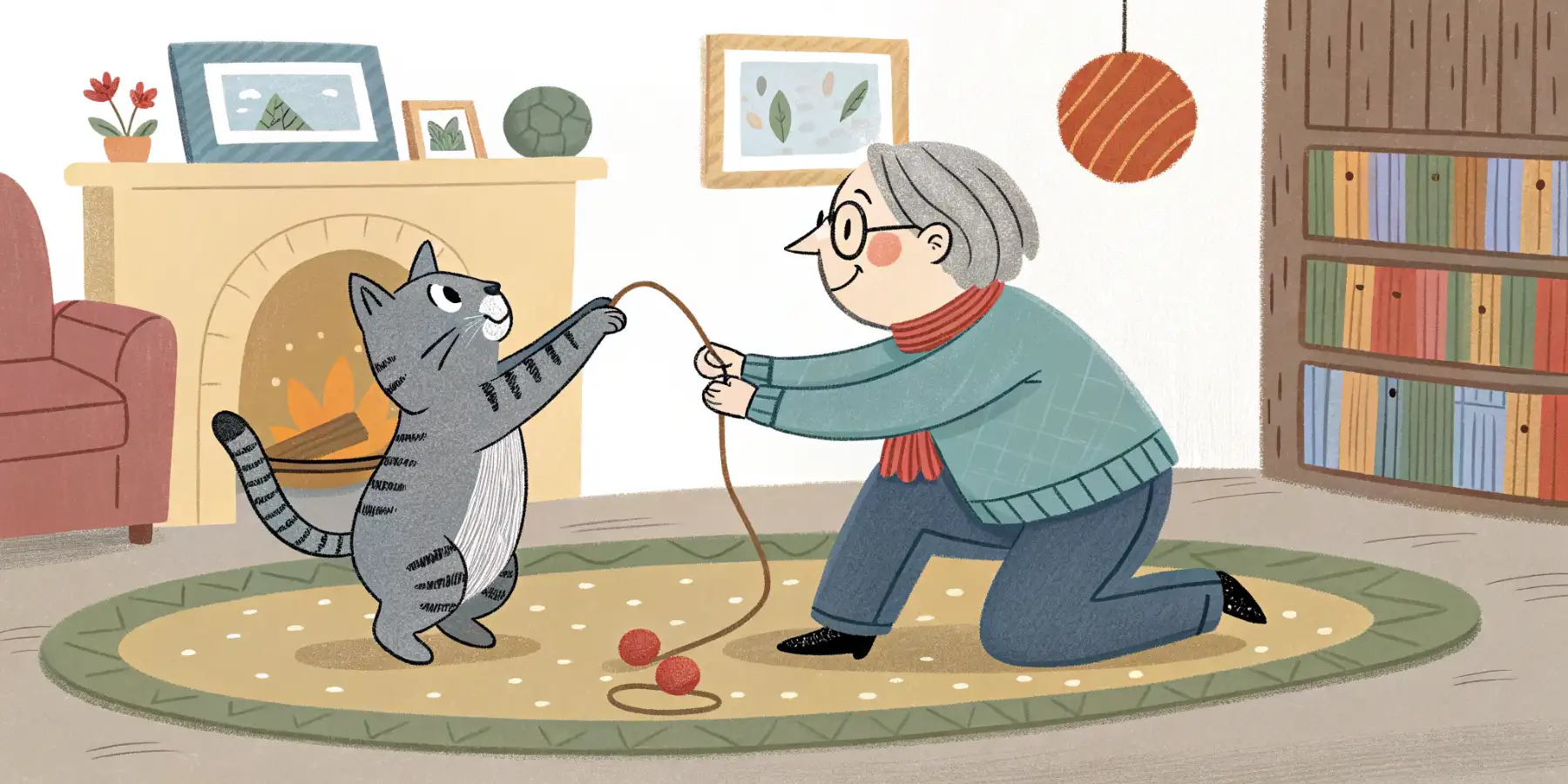
Senior Cat Care: Playful Comfort & Joy!
Senior cat care: Keep your aging feline happy & playful! Learn gentle games & tips for a joyful, comfortable life.
Keeping Your Senior Cat Comfortable and Engaged: Gentle Play and Interaction
As our feline friends gracefully age, their needs change. What was once a flurry of acrobatic leaps and relentless pouncing might give way to slower, more deliberate movements. It’s crucial to adapt our play and interaction styles to keep our senior cats happy, healthy, and engaged without overexerting them. This blog post will guide you through the best ways to provide enriching experiences for your aging feline companion.
Understanding the Senior Cat
First, let’s define “senior.” Generally, cats are considered senior around age 11, and geriatric after age 15. Just like people, cats experience age-related changes, including decreased mobility, sensory decline, and potential cognitive dysfunction (sometimes referred to as feline dementia).
These changes don’t mean playtime is over! It just means we need to be more mindful and considerate. Gentle play and interaction is critical for senior cat wellbeing. It helps stimulate their minds, maintain muscle mass (which is especially important as they age), and strengthens the bond you share.
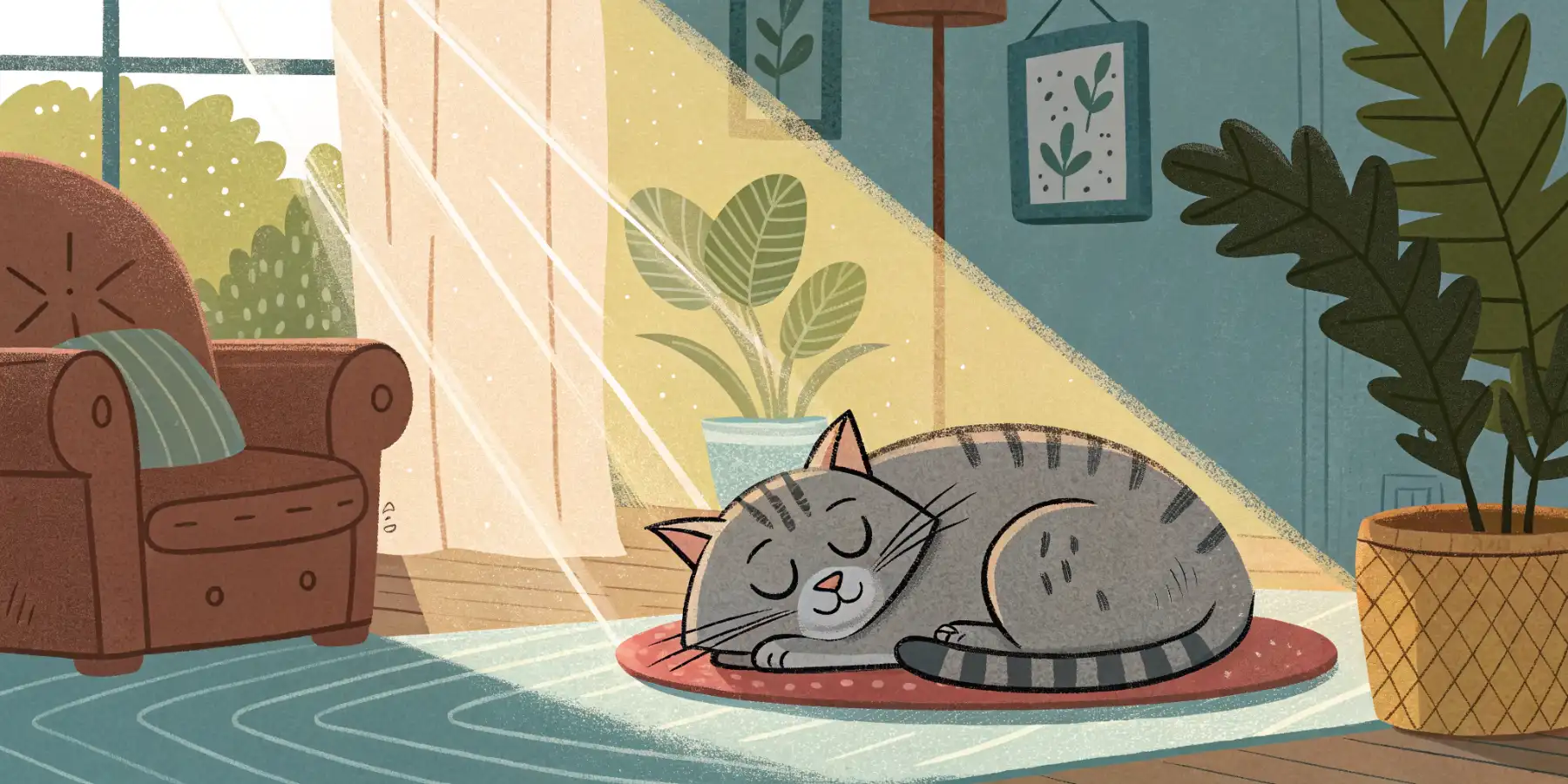 A senior cat enjoying a warm sunbeam, highlighting the importance of comfortable environments for older felines.
A senior cat enjoying a warm sunbeam, highlighting the importance of comfortable environments for older felines.
Adapting Play for Senior Cats
Gone are the days of marathon chase sessions with a laser pointer (probably – use those with caution even for younger cats!). Here’s how to adjust playtime:
-
Shorter Sessions: Aim for multiple short play sessions (5-10 minutes) throughout the day rather than one long one. This prevents exhaustion and allows your cat to enjoy the activity without overdoing it.
-
Lower Impact Toys: Opt for toys that require minimal exertion. Think soft plush toys, feather wands that move slowly, or even just a crumpled piece of paper. Avoid toys that encourage jumping or climbing if your cat has arthritis or mobility issues.
-
Focus on Sensory Stimulation: As cats age, their vision and hearing may decline. Use toys with interesting textures, smells (catnip is a classic!), or sounds (gentle crinkling toys) to engage their senses.
-
Respect Their Limits: Watch your cat closely for signs of fatigue or discomfort, such as heavy panting, stiffness, or reluctance to continue playing. If you notice these signs, stop the session immediately.
I believe that understanding your cat’s individual limitations is key. Every cat is different. What one 12-year-old can easily manage, another might find overwhelming. It’s about observation and adapting to their specific needs. In my experience, even just a few minutes of focused attention can make a huge difference in their overall mood.
Interactive Games and Bonding Activities
Playtime isn’t just about toys. Interactive games and bonding activities with your senior cat can be incredibly rewarding for both of you.
-
Gentle Petting and Grooming: Many senior cats relish gentle petting and grooming sessions. These activities can help stimulate circulation, remove loose fur, and provide a sense of comfort and security. I always recommend using a soft brush specifically designed for cats, paying extra attention to sensitive areas like their lower back.
-
Lap Time: If your cat enjoys cuddling, lap time can be a wonderful way to bond and provide warmth and companionship. Make sure they have easy access to your lap and a comfortable position.
-
Food Puzzles: Food puzzles can be a fantastic way to mentally stimulate your senior cat and slow down their eating, which can be especially beneficial if they’re prone to overeating. Start with simple puzzles and gradually increase the difficulty as they become more confident.
-
Talk to Them! Simply talking to your cat in a soothing voice can be incredibly comforting. Tell them how much you love them, reminisce about old times, or just narrate what you’re doing around the house.
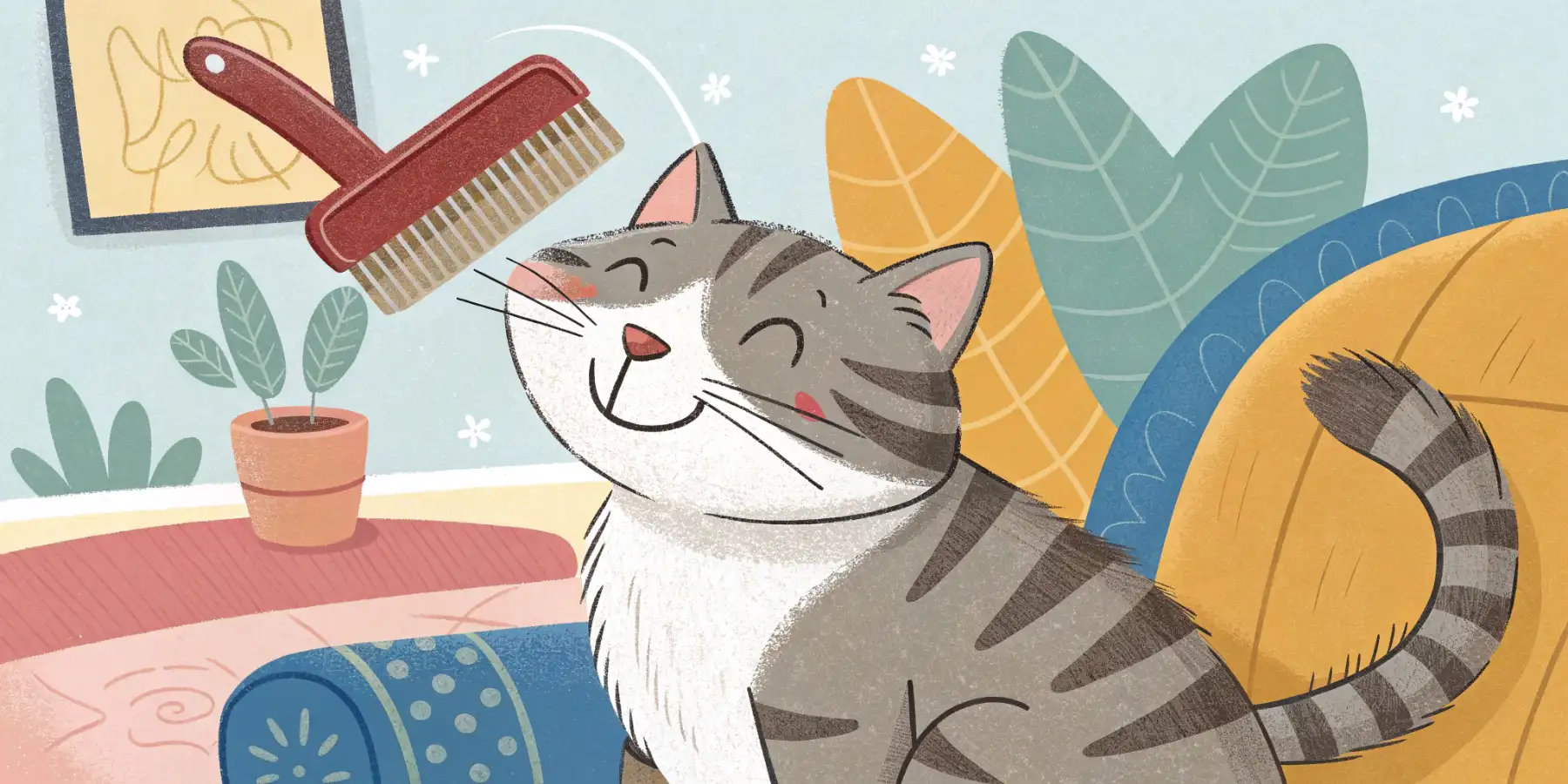 A senior cat enjoying a gentle brushing session, a great way to bond and provide tactile stimulation.
A senior cat enjoying a gentle brushing session, a great way to bond and provide tactile stimulation.
Creating a Comfortable Environment
A comfortable environment is paramount for senior cats. Make sure they have easy access to food, water, and litter boxes. Consider providing ramps or steps to help them reach their favorite spots. Soft, comfortable bedding in warm, draft-free areas is also essential.
Providing easy access litter boxes for senior cats is one of the most important things you can do. Low-sided litter boxes are easier to enter and exit, especially for cats with arthritis.
Recognizing Signs of Pain or Discomfort
It’s crucial to be vigilant about recognizing signs of pain or discomfort in your senior cat. These signs can be subtle, so pay close attention to their behavior.
- Changes in appetite or water consumption
- Decreased grooming
- Hiding or withdrawing from social interaction
- Limping or stiffness
- Changes in litter box habits
- Increased vocalization (meowing more than usual)
If you notice any of these signs, consult your veterinarian promptly. Early diagnosis and treatment can significantly improve your cat’s quality of life. Regular veterinary checkups for senior cats are essential to catch any underlying health issues early.
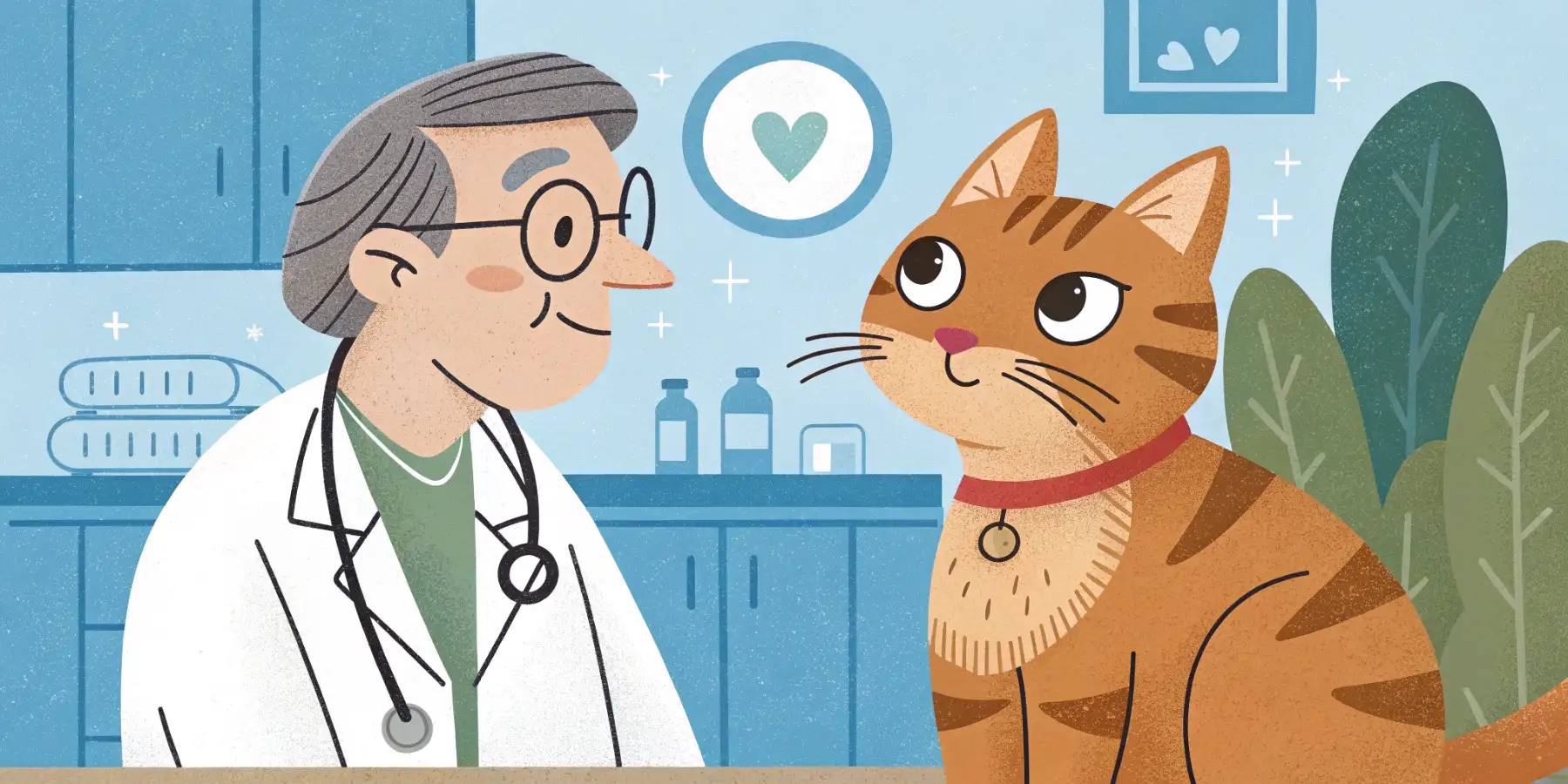 A senior cat receiving a checkup at the vet, emphasizing the importance of regular veterinary care.
A senior cat receiving a checkup at the vet, emphasizing the importance of regular veterinary care.
Cognitive Dysfunction (Feline Dementia)
As cats age, they can develop cognitive dysfunction, which is similar to Alzheimer’s disease in humans. Symptoms can include disorientation, confusion, changes in sleep-wake cycles, and loss of interest in activities.
If you suspect your cat may be experiencing cognitive dysfunction, talk to your veterinarian. There are medications and dietary supplements that can help manage the symptoms and improve their quality of life. Even simple strategies like maintaining a consistent routine and providing familiar objects can be beneficial.
In conclusion, keeping your senior cat comfortable and engaged requires a proactive and compassionate approach. By understanding their changing needs, adapting play and interaction styles, and creating a supportive environment, you can help your feline companion enjoy a long, happy, and fulfilling life. Remember, even small adjustments can make a world of difference in your senior cat’s happiness and wellbeing. Don’t underestimate the power of gentle play, loving attention, and a comfortable home.
